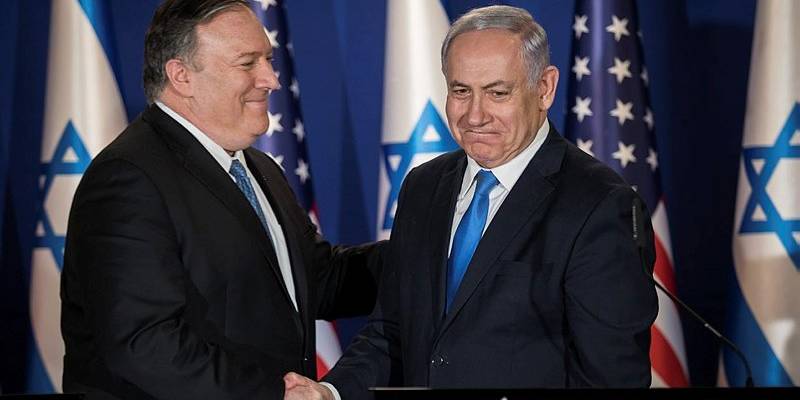Secretary of State Pompeo announced on Monday that the U.S. no longer deems Israeli communities in Judea and Samaria “illegal.”
By World Israel News and AP
On Monday, United States Secretary of State Mike Pompeo revoked a 1978 State Department opinion called the Hansell Memorandum, which claimed that civilian settlements in Judea and Samaria are “inconsistent with international law.” The move will likely anger Palestinians and put the U.S. at odds with nations that favor their position.
According to a report by the Jerusalem Post, the State Department’s legal office embarked on a year-long review of the Hansell Memo and met with international law experts and officials from various governments.
The State Department issued the Hansell Memo in 1978 under the Carter administration, but President Ronald Reagan rejected its conclusion in 1981.
The State Department undertook review of the memo fter the Obama administration, in one of its final moves, facilitated the United Nations Security Council’s passage of Resolution 2334 in December 2016, which condemned Jewish communities in Judea and Samaria as “flagrant violation[s]” of international law and with “no legal validity,” the Post reported.
According Pompeo, the Trump administration concluded that the Hansell Memo represents a distraction, and that any legal decision about the issue is appropriate for resolution by Israeli courts, according to a draft of Pompeo’s remarks obtained by The Associated Press.
“Calling the establishment of civilian settlements inconsistent with international law has not advanced the cause of peace,” Pompeo said. “The hard truth is that there will never be a judicial resolution to the conflict, and arguments about who is right and who is wrong as a matter of international law will not bring peace.”
Previous U.S. policies under the Trump administration have included the decision to recognize Jerusalem as Israel’s capital, the movement of the U.S. Embassy to that city and the closure of the Palestinian diplomatic office in Washington.
According to a 2019 report sponsored by Bet El Institutions, an organization with ties to U.S. Ambassador to Israel David Friedman, the population in Jewish communities in Judea and Samaria grew to 449,508 as of Jan. 1, 2019 up 3.3 percent from 435,159 people one year earlier.
Shifting tide?
Even though the Trump Administration’s decision is largely symbolic, it could also give a boost to Israeli Prime Minister Benjamin Netanyahu, who is fighting for his political survival after he was unable to form a coalition government following recent elections.
In addition, it could spell further trouble for the Trump administration’s Mideast peace plan.
Last week, the European Court of Justice ruled that products made in Jewish communities in Judea and Samaria must bear special labels identifying their origin.
Pompeo announced that the U.S. does not take a position on the legality of specific communities and that the new policy would not extend beyond Judea and Samaria to other territorial disputes.
The shift is a victory for Netanyahu, a longtime booster of the Jewish communities in Judea and Samaria, and had been strongly supported by Ambassador Friedman. Friedman was a major fundraiser for Jewish communities in Judea and Samaria before becoming ambassador.
Israel captured Judea and Samaria, including eastern portions of Jerusalem, in 1967’s Six-Day War, a conflict during which four Arab states attacked Israel. Israel defeated all Arab aggressors in the conflict.
After the war, Israel declared a “united Jerusalem,” regaining access to Judaism’s holiest site, the Temple Mount, including the Western Wall structure.
Israel has yet to annex Judea and Samaria, despite the hundreds of thousands of Jews who call it home.
The Palestinian Authority, which has not held elections in since 2006, claims that territory in Judea and Samaria will be a part of a future independent state.
Many Israelis maintain that the Palestinian Authority’s open support for terrorism, in addition to the handful of Palestinian terror groups with which it competes for power, such as Hamas and Islamic Jihad, make the prospect of an autonomous Palestinian state on Israel’s borders a major security threat.











